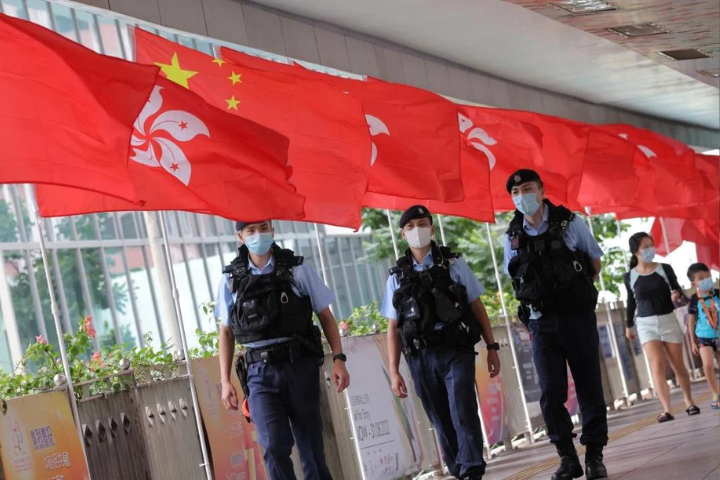Chu Kai-pong, 27, was given a 14-month prison sentence by a Hong Kong court on September 19, 2024, for donning a T-shirt bearing a protest message that was considered “seditious.” This case represents the first conviction under Article 23, the recently passed national security statute, which critics claim represents a major increase in the region’s repression of dissent.
The Event and the Allegations
On June 12, 2019, the fifth anniversary of the anti-extradition demonstrations, Chu was taken into custody while sporting a T-shirt that said, “Liberate Hong Kong, revolution of our times.” Along with the phrase “FDNOL,” which stands for “Five demands, not one less,” he also wore a mask bearing another pro-democracy movement slogan. These slogans were seen by the authorities as possibly encouraging separatism and inciting hatred toward the Chinese government, which would be a major violation of the new law.
In court, Chu entered a guilty plea to the accusation of “doing acts with seditious intention.” The prosecution contended that his actions could encourage others to partake in illicit activities and were meant to revive protestor feelings. Chu’s decision to wear the T-shirt on such a significant date, according to Chief Magistrate Victor So, showed a conscious effort to incite trouble. He mentioned that earlier in the year, Chu had done three months in jail for similar behavior.
Consequences of Article 23
The national security law, passed in March 2024, increases the authority of the state to penalize actions that it considers to be subversive. According to this statute, those found guilty of sedition may receive sentences of up to seven years in jail, with additional penalties of up to ten years if it is determined that they conspired with foreign forces. Opponents contend that the legislation’s ambiguity and breadth permit arbitrarily suppressing criticism.
Human rights groups have denounced Chu’s conviction as a flagrant violation of the right to free speech. Amnesty International’s Sarah Brooks urged Chu’s quick release, stressing that he hasn’t committed any crimes that are recognized globally. Concerns over Hong Kong’s civil freedoms are becoming more pressing as a result of the case and the government’s ongoing crackdown on dissent in the wake of large-scale demonstrations against Beijing’s expanding influence in the area.




GIPHY App Key not set. Please check settings